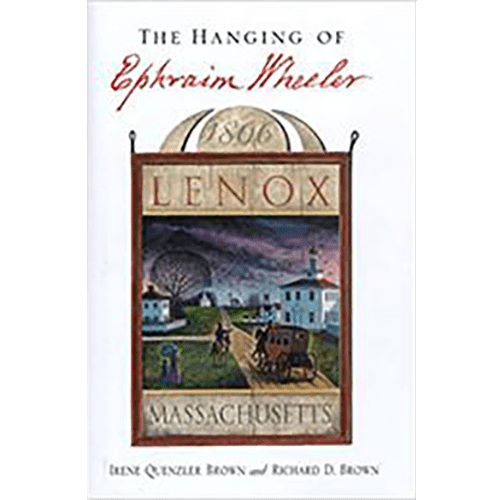Description
Author Irene Quenzler Brown and Richard D. Brown
Publisher Harvard University Press 2003
Format hardcover with dustjacket
Condition Like new with dustjacket protected with Brodart Archival Covering
Summary
The Hanging of Ephraim Wheeler by Irene Quenzler Brown and Richard D. Brown delves into the harrowing 1806 case of Ephraim Wheeler, executed in Lenox, Massachusetts, for the alleged rape of his thirteen-year-old daughter, Betsy. This meticulously researched narrative reconstructs the events leading to Wheeler's conviction and execution, exploring the complexities of family dynamics, societal norms, and the justice system of early America. The authors provide a nuanced examination of Wheeler's marginalized existence—his illiteracy, impoverishment, and tumultuous family life—while also shedding light on broader themes such as capital punishment, race, class, and gender during that era. The book challenges readers to reflect on the nature of justice and morality, drawing parallels between past and present societal issues
